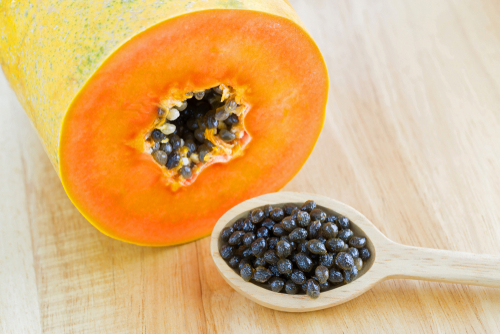
Do Proteolytic Enzymes Help with Inflammation?
Whether triggered by an injury, a sinus infection or something you ate, inflammation can make life difficult and unpleasant. Inflammation serves a very important physiological function — to help the body ward off potentially dangerous foreign invaders and kickstart the healing process. However, the body’s inflammatory response is prone to mistakes and can overreact. As a result, painful chronic and acute inflammation occur often. Unsurprisingly, non-steroidal anti-inflammatory drugs (NSAIDs) and anti-inflammatory corticosteroids are widely purchased and prescribed for the treatment of inflammation.
What’s Wrong with NSAIDs and Steroids?
If these oft-used anti-inflammatories work, what’s the problem? Generally speaking, these treatments are considered safe when taken carefully and in moderation. However, research indicates that prolonged use of NSAIDs is associated with a number of adverse effects, including renal function and gastrointestinal complications. Similarly, corticosteroids ( often prescribed for ailments like arthritis ) may also lead to weight gain, mood swings, cataracts, glaucoma and bone loss, and can increase your susceptibility to infection. Consequentially, these risks and side effects take the most common anti-inflammation treatments off the table for many people.
Is There an Alternative?
Proteolytic enzymes may be a promising, natural alternative to NSAIDs and other risky anti-inflammatory treatments. Found naturally in the body as well as some foods and supplements, proteolytic enzymes are a group of enzymes that help the body digest protein and convert nutrients into energy. Some of the more common proteolytic enzymes are serrapeptase, protease, bromelain, papain, pancreatin and trypsin. Because of these enzymes’ capacity to aid in the digestive process, proteolytic enzymes are typically added to digestive support supplements. Interestingly, there are various studies suggesting that proteolytic enzymes could be an effective aid in decreasing inflammation. One in particular found that the proteolytic enzyme serrapeptase effectively reduced pain intensity and swelling in subjects following oral surgery, while another showed that bromelain could play a significant role as an anti-inflammatory because it decreased the majority of inflammatory mediators. Of course, this is good news for many, since these enzymes are associated with very few side effects, especially when compared with typical prescriptions and over-the-counter drugs. The enzymes chemical process is complicated, but to put it simply, they aid in the breakdown of certain inflammation triggers. Specifically, they are thought to regulate the body’s inflammatory response through processes such as reducing the swelling of mucous membranes, helping to break down clot-forming fibrin and facilitating the passage of plasma proteins through the lymphatic system. Specific enzymes function in distinct ways. For example, some enzymes are especially good at reducing the blood’s viscosity, which can help the body better deliver essential nutrients to where they’re needed the most. To get the most out of protease anti-inflammatory properties, the enzyme requires systemic absorption. To do this, you must take your protease on an empty stomach 30 minutes before or 2 hours after a meal, and always with a glass of water. The results may surprise you.

The Best Enzymes for Inflammation
So now that you know that certain enzymes may help the body more efficiently respond to inflammation, let’s take a look at some of the best enzymes for the job.
- Serrapeptase — Serrapeptase, derived from the Serratia bacteria, supports the body’s healthy response to inflammation. This powerful systemic enzyme may help thin fluids that contribute to the body’s inflammatory response.
- Protease — The proteolytic enzyme protease not only helps the body break down proteins and peptides, more importantly, it aids in normalizing inflammatory response. This enzyme also helps provide support during muscle recovery.
- Bromelain — As previously mentioned, bromelain is used to help control inflammation and swelling. This proteolytic enzyme is an extract from the stem of pineapple and is commonly included in both systemic and digestive enzyme blends.
- Papain — This enzyme, extracted from the papaya plant, is thought to stop triggers of the inflammatory response and is used to treat inflammation and swelling.
 Specialty Enzymes & Probiotics offers powerful, expertly formulated enzyme blends that provide support for the whole body. All of our formulations are vegetarian, kosher, halal, gluten-free and GMO-free. We offer many powerful proteolytic enzyme blends, including Pepzyme AG™ and Peptizyme SP EN™, for your cutting-edge enzyme-based innovations.
Specialty Enzymes & Probiotics offers powerful, expertly formulated enzyme blends that provide support for the whole body. All of our formulations are vegetarian, kosher, halal, gluten-free and GMO-free. We offer many powerful proteolytic enzyme blends, including Pepzyme AG™ and Peptizyme SP EN™, for your cutting-edge enzyme-based innovations.




